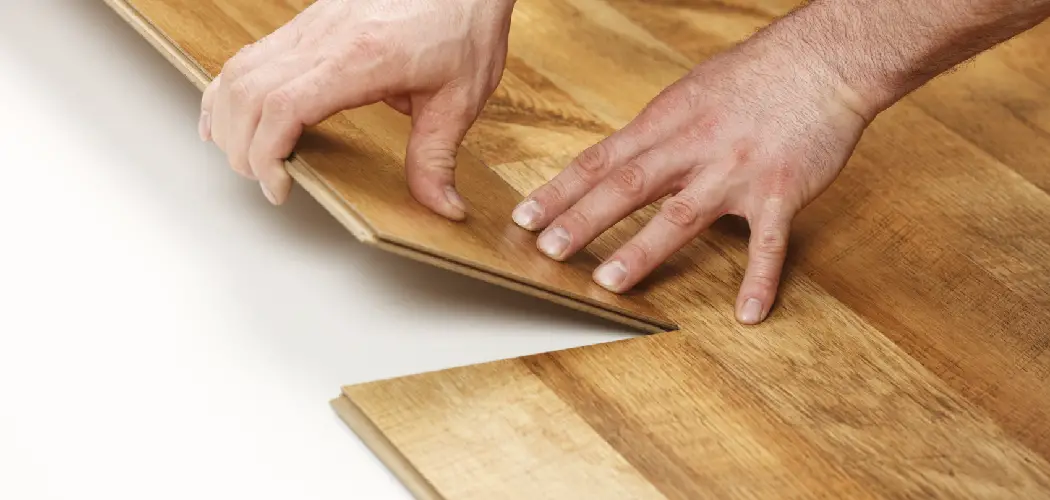Due to their durability and aesthetic appeal, engineered hardwood floors are a popular choice for many homeowners. However, like all hardwood floors, they are susceptible to water damage. Water can cause the wood to swell, warp, and discolor, leading to mold and mildew growth.
Fortunately, there are some things you can do to minimize the risk of water damage to your engineered hardwood floors. So keep reading to learn more about how to protect engineered hardwood floors from water.
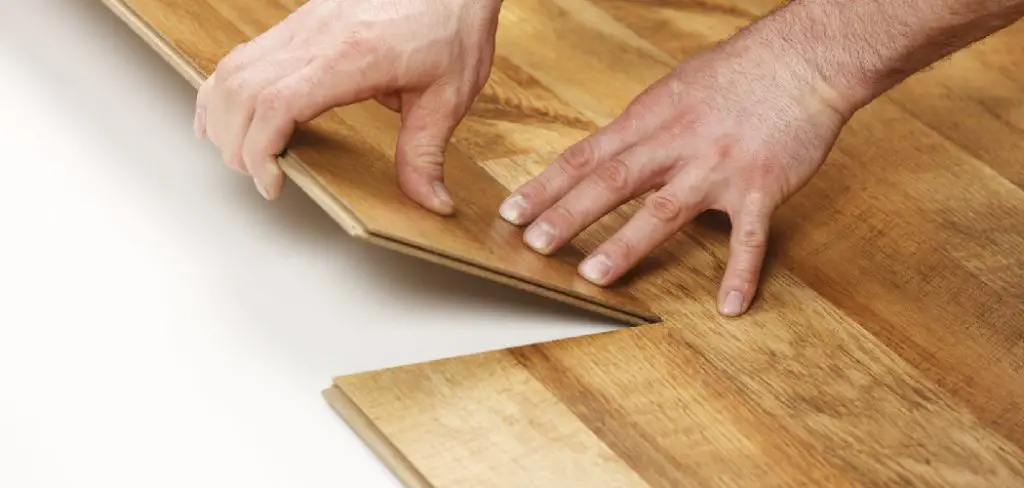
Why Should You Protect Engineered Hardwood Floors from Water?
Engineered hardwood floors are a popular choice for many homeowners because they offer the natural beauty of wood with the added durability of a composite material. However, engineered hardwood is not impervious to water damage, and it is important to take precautions to protect your floors from spills and other sources of moisture.
Water can cause the layers of an engineered hardwood floor to separate, resulting in warping and cupping. In addition, water can discolor the finish, causing permanent staining.
7 Ways to Follow on How to Protect Engineered Hardwood Floors from Water
1. Keep Your Floors Clean and Dry
Sweeping or vacuuming your floors regularly will help remove any dirt, dust, or debris that could hold moisture against the wood. In addition, be sure to wipe up any spills as soon as they happen. Finally, if you have high-traffic areas in your home, consider placing mats or rugs at entryways to help catch any water or mud that might be brought in on shoes.
2. Use Furniture Protection Pads
Whenever you move furniture around, there is a risk of scratches or scuffs. But if you use protective pads on the legs of chairs and tables, you can help reduce this risk. In addition, protection pads will provide a barrier between the wood and any moisture that might come from sweaty glasses or spills.
3. Keep Humidity Levels Low
High humidity levels can cause engineered hardwood floors to warp or cup. To help prevent this, use a dehumidifier in your home, especially in rooms where you have hardwood floors. You should also avoid using steam cleaners on your floors, as the moisture can seep into the wood and cause damage.
4. Avoid Direct Sunlight
Too much sunlight can also cause engineered hardwood floors to fade or discolor over time. So, if possible, try to keep your blinds or curtains closed during the daytime hours. If you do need to let in some light, consider using sheer curtains that will filter the sun’s rays.
5. Choose the Right Cleaning Products
When it comes to cleaning your engineered hardwood floors, you need to be careful about the products you use. Avoid any cleaners that contain waxes, oils, or silicones, as these can leave a residue on the floor that will attract dirt and dust. Instead, opt for cleaners that are specifically designed for hardwood floors.
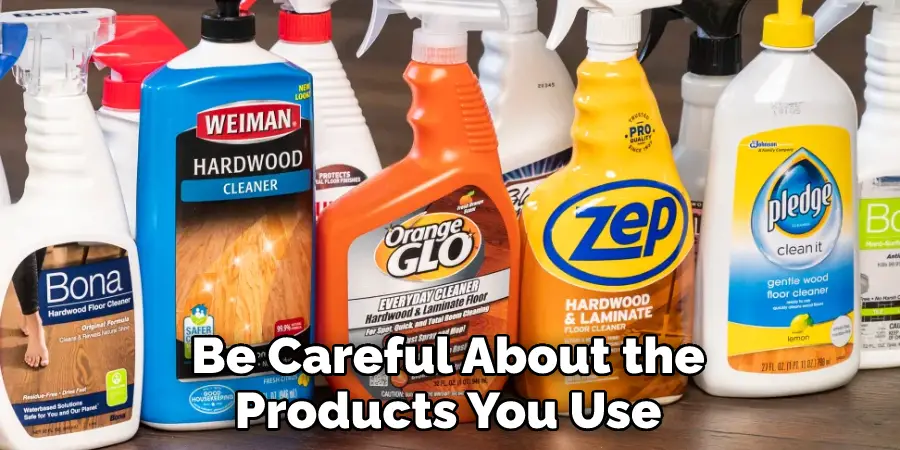
6. Don’t Use Extreme Heat or Cold
Applying extreme heat or cold to your engineered hardwood floors can cause them to warp or crack. So, be careful when using space heaters or fireplaces, and avoid placing rugs or furniture on top of vents. In addition, don’t use steam cleaners on your floors, as the moisture can seep into the wood and cause damage.
7. Get Professionals to Help with Water Damage
If you do have any water damage on your engineered hardwood floors, it’s important to get it fixed as soon as possible. Otherwise, the water can seep into the wood and cause the boards to warp or cup. So, if you have any flooding, leaks, or other water damage, call a professional immediately.
That’s it! You’ve now learned how to protect engineered hardwood floors from water. Just remember to keep your floors clean and dry, use furniture protection pads, avoid direct sunlight, and choose the right cleaning products. If you do have any water damage, be sure to get it fixed as soon as possible.
Also You Can Visit To How to Remove Haze From Engineered Hardwood Floors
Why Should you Follow These Ways to Protect Engineered Hardwood Floors from Water?
Engineered hardwood floors are a popular choice for many homeowners because they offer the beauty of hardwood floors with the added durability of a plywood or particle board core. However, engineered hardwood floors can be susceptible to water damage if they’re not properly cared for.
Water can cause engineered hardwood floors to warp or cup, and it can also lead to the growth of mold and mildew. So, it’s important to take steps to protect your floors from water damage. By following the tips above, you can help keep your engineered hardwood floors in pristine condition for years to come.
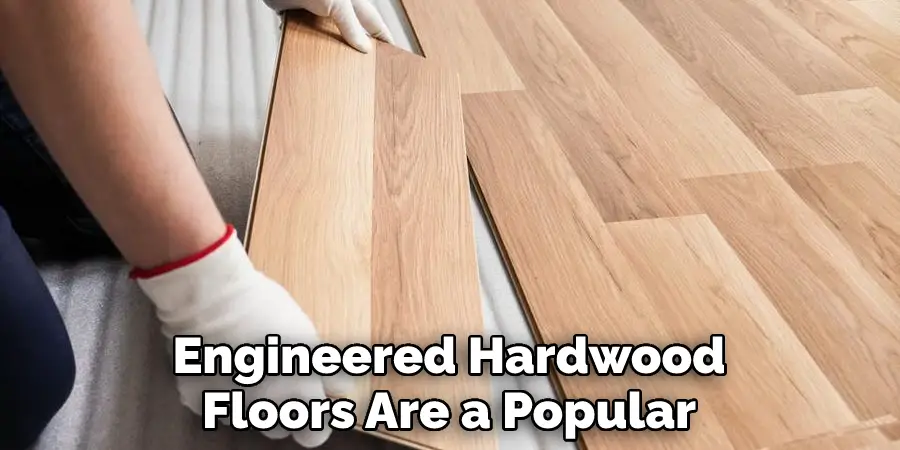
What Causes Water Damage to Engineered Hardwood Floors?
Engineered hardwood floors are a popular choice for many homeowners because they are durable and easy to care for. However, water damage is one of the most common problems that can occur.
While engineered hardwood floors are designed to be resistant to moisture, they can still be damaged if water is allowed to seep in through cracks or seams. In addition, once the water reaches the subfloor, it can cause the boards to swell and warp.
In extreme cases, the flooring may even need to be replaced. However, there are a few things that you can do to help prevent water damage, such as keeping the floor clean and free of debris, repairing any damage promptly, and making sure that the room is well-ventilated. By taking these precautions, you can help ensure that your engineered hardwood floor will last for years to come.
What Are Some Quick Tips for Drying out Wet Engineered Hardwood Floors?
Engineered hardwood floors are a beautiful and durable flooring option for homes. However, they can be susceptible to water damage if they are not properly cared for. If your engineered hardwood floors have become wet, there are a few quick tips you can follow to dry them out as quickly as possible.
First, use a soft cloth or mop to soak up any standing water. Then, turn on any fans or air conditioners in the room to help circulate the air and speed up the drying process. Finally, open any windows to allow fresh air to enter the room. Following these simple steps can help prevent further damage to your engineered hardwood floors.
Is It Possible to Waterproof My Engineered Hardwood Flooring?
Engineered hardwood flooring is a popular choice for many homeowners because it is more durable than traditional hardwood and can be installed over various subfloors. However, engineered hardwood is not waterproof, and spilled water can lead to warping and cupping.
While applying a waterproof sealant to engineered hardwood is possible, this will only protect the surface of the flooring and will not prevent water damage if liquid penetrates through cracks or seams. For this reason, it is important to clean up spills quickly and take care to avoid moisture exposure when installing or cleaning engineered hardwood floors.
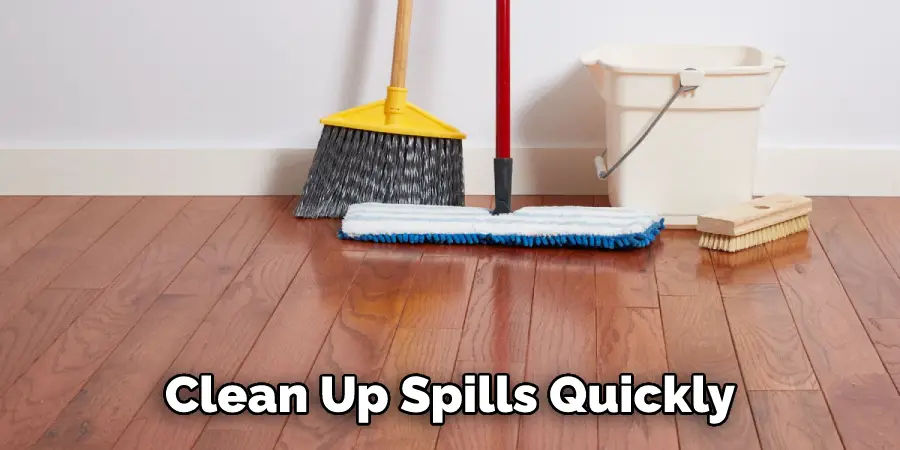
How Can You Prevent Water Damage to Your Engineered Hardwood Floors?
You can take several steps to prevent water damage to your engineered hardwood floors. One is to regularly check the floor for any signs of leaks or moisture. If you find any, it is important to address the problem immediately. Another way to prevent water damage is to use mats or Area Rugs in high-traffic areas. This will help to protect the floor from dirt and moisture.
In addition, you should avoid using cleaning products that contain harsh chemicals, as these can damage the finish of the flooring. Finally, having the floors professionally sealed every few years is a good idea to provide an extra layer of protection. These simple measures can help ensure that your engineered hardwood floors stay beautiful for many years.
How to Clean and Care for Your Engineered hard floors
Engineered hard floors are a popular choice for many homes and businesses due to their durability and easy maintenance. However, even the toughest flooring needs a little bit of care from time to time. Here are some tips on how to keep your engineered hard floors looking their best:
Sweeping or vacuuming daily to remove dirt and debris; using a damp mop or cloth to clean spills and stains as soon as they happen; and avoiding harsh cleaners or abrasive scrubbers, which can damage the finish. In addition, it is important to have your floors professionally cleaned and sealed every few years to protect them from wear and tear.
By following these simple tips, you can keep your engineered hard floors looking like new for years to come.
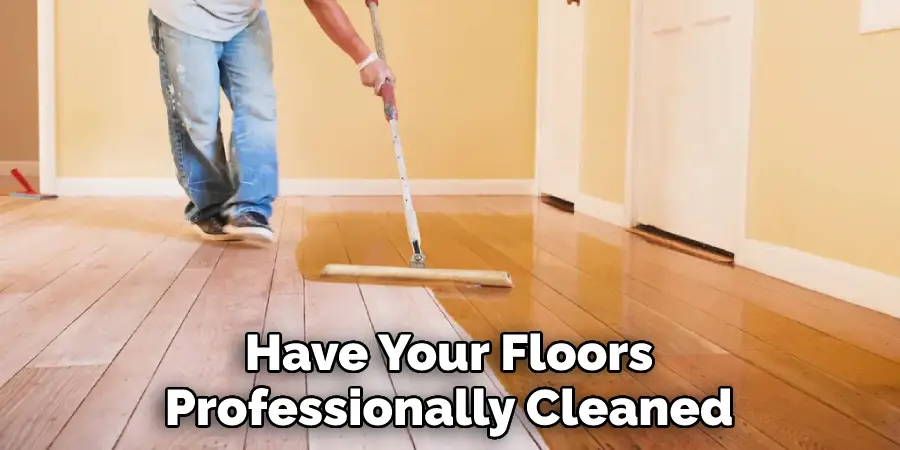
Conclusion
By taking some simple preventative measures, you can help protect your engineered hardwood floors from water damage. Sweeping or vacuuming regularly and wiping up spills right away will go a long way in keeping your floors clean and dry.
You should also use furniture protection pads and regularly treat your floors with a sealer or wax. By following these tips, you can enjoy your beautiful hardwood floors for years to come without worry! Thanks for reading our post about how to protect engineered hardwood floors from water.

